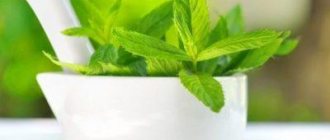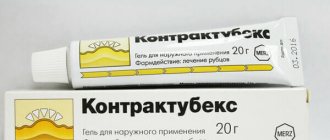From a chemical point of view, limonene belongs to the class of terpenes, but in fact it is an ester that is found in the zest of all citrus fruits. Based on the name, it seems that most of it is in the lemon peel, but in fact the highest concentration of the substance is in the orange zest (more than 95%). Limonene is also found in the essential oils of bergamot, caraway, dill, fennel, neroli, erigerone, petitgrain, elemi, parsley, and pine, but it was first isolated from the essential oil of orange peels back in the 19th century.
Initially, scientists considered limonene to be a polyisomer, since the aromatic odor of the substance was inherent in many plants. Later it became clear that there are only two isomers: one is found in citrus fruits and smells like lemon, and the second is in pine oils and turpentine.
In this article:
What are terpenesWhy limonene is interesting to cosmetologistsThe place of limonene in skin care products
What are terpenes
Photo by Anna Shvets: Pexels
Terpenes, of which limonene is a representative, are aromatic compounds found in many plants. But most often they are associated with cannabis from the hemp family, a narcotic substance with psychotropic effects. However, this does not mean that terpenes are dangerous for humans.
Until the forties of the last century, hemp, for example, was cultivated as a universal plant from which paper could be obtained, saving forests from deforestation. And cannabis was used in the production of diesel fuel and fabrics stronger than cotton.
The cultivation of hemp was banned by two greedy American congressmen who convinced the US authorities of the dangers of the plant. And the box opened simply: hemp processing could become the leading industry in the United States, overtaking the oil industry. The oil magnates could not allow this: they simply forgot about the beneficial properties of hemp. True, terpenes have traditionally been and are used in medicine, taking into account their anti-inflammatory and antioxidant properties for:
- multiple sclerosis;
- diarrhea;
- anorexia;
Antioxidants in cosmetics
- nausea from chemotherapy;
- myalgia;
- psychoses.
Naturally, limonene also has all the beneficial properties of terpenes to one degree or another. But it found its main use in cosmetology because of its pleasant aroma.
What is the difference between D and L isomers
Today, two forms of the substance are distinguished: D and L, but not so long ago this division did not exist - there was one isomer, dipentene. This substance was highly allergenic and demonstrated properties similar to turpentine or acetone.
Hundreds of scientific studies have been conducted, as a result of which two isomers of limonene were identified, and carcinogenic properties were suspected in one of them (L-form). After this, the optical isomer of the L-fraction, D-limonene, was isolated as a separate component of medical products.
Currently, the world's annual production of D-limonene reaches more than 70,000 tons and continues to grow rapidly to meet the demand for the substance in general medical practice. But in cosmetology, both isoversions of limonene are still used, since the L-isomer (enantiomer) has a strong pine odor and is used as a fragrance. The D-isomer has a pleasant lemon smell, so when they talk about limonene, they mean the D-form.
How is limonene obtained?
The substance can be obtained from citrus esters by centrifugation and division into fractions with distillation steam - this is a natural method, or it can be synthesized. On an industrial scale, the synthetic production of limonene from geraniol is used. The result is a viscous, aromatic, colorless liquid that cannot be dissolved in water, but it has excellent contact with alcohol.
Compound
Many people believe that lemon (like any other citrus fruit) consists exclusively of ascorbic acid. In fact, it contains only a small amount in its composition. What is included in lemon extract and how does it affect the skin?
- fruit acids – exfoliation;
- limonene – flavoring;
- ascorbic acid – antioxidant;
- vitamins B1, P, B2 – cell regeneration;
- flavonoids – antioxidant;
- phytoncides - antiseptic.
Why is limonene interesting for cosmetologists?
Limonene in undiluted form can be dangerous for the skin: burns (!), so in skin care products they use a small concentration of it - only 0.01%. It occupies the last line in the list of ingredients. It attracts cosmetologists with only three main properties:
Giphy
- aromatic – the pleasant aroma of citrus or pine gives additional attractiveness to any cosmetics;
- dissolving – limonene is an excellent fat solvent, that is, it is an excellent alternative to alcohols that dry out the skin;
- antiseptic - a terpene substance is able to resist bacteria, fungi, mites, mold, protecting both the skin and cosmetics themselves from the harmful effects of microbes and the environment (this, by the way, is based on the property of limonene to repel insects and animals from plants in the wild, and in industry it is included in ointments and repellent sprays).
Why don’t they focus on the antioxidant and anti-inflammatory properties of the substance? The fact is that in such a concentration it practically does not work.
Until recently, limonene raised concerns about its allergenicity and carcinogenicity. According to the latest scientific data, the allergenicity of limonene is no higher than that of other flavors, including natural citrus fruits.
As for carcinogenicity, all suspicions against limonene have been removed, and today it is officially classified as a substance with stable safety by the International Agency for Research on Cancer. Moreover, there is evidence of limonene’s ability to inhibit the growth of a number of tumors, having a beneficial effect on the entire human body as a whole.
Photo by Reginaldo Lustosa: Pexels
Contraindications
There is a minimum of them: individual intolerance and a tendency to allergic reactions to pine needles and citrus fruits.
Beneficial features
Lemon affects the skin in the following ways:
- improves appearance;
- replenishes vitamin deficiencies;
- gives elasticity;
- makes it elastic;
- evens out the shade;
- smoothes wrinkles;
- relieves swelling;
- accelerates blood microcirculation;
- exfoliates;
- restores water-alkaline balance;
- tones;
- has a bactericidal effect;
- promotes wound healing.
Place of limonene in skin care products
It is clear that limonene is popular as a fragrance and flavoring agent. Despite the fact that there are two scent options: lemon and pine, the D-isomer with a lemon aroma is mainly used. It creates a wonderful mood and is able to disinfect the skin and nail plates. Limonene is used in:
- care products for face, body, hair: creams, tonics, lotions, shampoos, conditioners, bath foam, shaving creams, soaps, shower gels;
- tanning products;
- decorative cosmetics: lipsticks, lip balms.
Aromatherapy
Remember what you associate with the New Year? Of course, with the smell of a Christmas tree and tangerines! That is, limonene has every chance of giving everyone a good mood if you include it in the complex treatment of depression and nervous disorders. This is what doctors use: the aroma of citrus fruits is very beneficial for health. Today there is limonene in diffusers for cars, it relieves stress during long periods of standing in traffic jams.
Photo by RODNAE Productions: Pexels
What does skin have to do with it? It reacts to a stressful situation like no other organ: it fades, turns gray, and becomes inflamed. Limonene, while balancing the functioning of the nervous system, simultaneously improves microcirculation of the dermis and evens out its tone.
Moreover, with aromatherapy, two main medicinal properties of limonene begin to realize themselves: antioxidant and anti-inflammatory. The skin gets rid of imperfections, which are based on inflammation, and becomes younger.
So, limonene is a beneficial compound found in citrus peels. For cosmetologists, it is interesting for its aroma: pleasant and healing at the same time. In care products, it is used in a minimum concentration (0.01%), which guarantees the safety of the substance and at the same time helps replace the alcohol used as a solvent, which is dangerous for dry and sensitive skin. Clinical studies of limonene have not been completed; many more amazing discoveries await us.
But today, to boost your mood, feel free to add lemon or orange zest to your favorite drink. Then every lesson will be truly good for you!
Use in aromatherapy
Most of us are familiar with the strong smell that fills a room when peeling an orange. Much of this aroma comes from the essential oils contained in the orange peel. Limonene is the most common and powerful of these essential oils. When used in aromatherapy, citrus essential oils with high concentrations of limonene can have many health benefits.
Most citrus-based essential oils will contain up to 90 percent limonene with a mixture of other terpenes unique to the plant. It is unlikely that you will use an essential oil that is 100% limonene. Each of the different mixtures may have slightly different effects, but most are very similar.
For example, lemon essential oil is primarily limonene. It is said to have an energizing effect that can lift your spirits. It also provides a powerful and fresh aroma that most people enjoy. Most other citrus oils, such as sweet orange, lime, grapefruit and bergamot, have the same uplifting and energizing effects.
It can be a wonderful ritual to fill your room diffuser with limonene-infused essential oil in the morning and let it work its magic to wake you up and get you ready to start your day. You can also use a personal essential oil diffuser that contains essential oils high in limonene, such as sweet orange, lemon, lime, or bergamot. They can be used to relieve stress while sitting in traffic.
Vitamin peeling gel with lemon extract Vita Lemon Sparkling Peeling Gel MIZON
Lemon has a brightening effect - this allows the component to be included in the composition of rinses and toothpastes, as well as products against age spots. Vitamin peeling gel from MIZON solves the problem of uneven skin tone. In addition, it gently exfoliates the dermis and accelerates tissue regeneration.
The product is suitable for those with oily skin - it prevents the appearance of oily shine. It will also be useful for those who suffer from acne - the peeling gel perfectly relieves inflammation and tightens pores. The manufacturer recommends using the composition no more than 2 times a week, so one bottle is enough for a long time.
Center for Integrative Medicine
Today I will share a little information from our AromaCoaching and talk about an interesting substance called D-limonene. Many citrus oils contain it.
D-limonene molecules are very small and are highly soluble in fats (lipids). Thus, they are lipophilic molecules (that is, they love fat, oil). Why do we need to understand this?
Our skin is also inherently a lipophilic substance! And fat + fat go together perfectly.
This means that when applying oils containing lipophilic molecules of oils containing D-limonene, the oils will be absorbed into our skin very quickly. And since D-limonene molecules are very small, they will take with them everything that is on the skin. They seem to invite everyone to a party: hey, come with us, it will be fun!
Therefore, be careful when applying oils containing D-limonene transdermally (that is, to the skin)!
Conclusion: No additions of citrus oils to store-bought creams, shampoos, lotions!!!
Regarding the internal use of citrus oils:
I often see on websites that it is recommended to take citrus oils in the spring to detoxify the liver, 10 drops 3 times a day in a glass of water. Do not do this under any circumstances!!!
Essential oil molecules are very concentrated and reactive.
D-limonene contained in citrus oils is quickly absorbed along the gastrointestinal tract and primarily in our esophagus. With each repeated intake, the esophageal mucosa ulcerates, which ultimately leads to erosive esophagitis.
Therefore, advice: take citrus fruits in carrier oils or capsules.
If we take it in capsule form, then the capsules are broken down either in the stomach or in the intestines (depending on the type of capsules), thus reaching where we want the essential oil to be delivered.
Limonene and our liver
D-limonene helps in liver detoxification. For example: It prevents the destruction of glutathione as a result of taking medications containing paracetamol.
Experiment on mice: paracetamol (0.6%) was given for 10 days - as a result, the liver enzyme GSH-S-transferase (GST) was activated, as a result of which glutathione levels suffered greatly (46%). When dietary D-limonene (1.0%) was administered to mice for 10 days, glutathione remained at a level of 92%!
Without taking paracetamol: D-limonene increases glutathione levels by as much as 23%!!
And we really need glutathione. This is the most powerful antioxidant that is constantly at work, neutralizing toxins and other pathogens. Without high levels of glutathione, our liver will never be able to perform its detoxification function properly! But the wonderful qualities of limonene do not end there.
In many experiments and studies, it has been proven that D-limonene:
- helps prevent the formation of cells that destroy our skeletal system;
- helps cope with oxidative stress;
- protects mitochondria;
- does not allow killer cells to develop, inhibits the process of apoptosis;
- eliminates the negative consequences of chemotherapy and other types of invasive therapies for oncology.
But there is also a nuance in working with oils containing D-limonene: they have a weak point - they are not strong in their antioxidant abilities due to their chemical structure, so they oxidize easily. It is better to keep such oils in the refrigerator and no more than 1 year after the first use.
Hopefully the chemistry of essential oils will now be a little clearer. After all, without understanding how the molecules of essential oils work, you will never achieve quick and high-quality results in Aromatherapy!
Chemistry can be both fun and not boring.
In our AromaCoaching classes, I teach students to understand essential oils and work with them professionally. After all, we want to recover quickly, we want to effectively help our clients, we want to make money from our knowledge?!
Contents of AromaCoaching classes. Details HERE Exclusive annual Magazine "AromaPractice". Details HERE
ATTENTION!!! When you purchase an annual subscription to the Magazine, you receive all AromaCoaching sessions worth RUB 29,200. with 50% discount!
I wish you fragrant Happiness, Love, Health, Prosperity, Peace in the Soul!
Yours, Dr. Ulviya Goldenbrook
Holika Holika Pure Essence Mask Sheet Lemon
Vitamin C in the composition allows the mask to be used by owners of age spots - it has a brightening effect. After use, the skin becomes elastic and acquires a healthy color. The manufacturer recommends keeping the composition on your face for only 15-20 minutes - this time is enough for the skin to be recharged with vitamins and the active ingredients to begin to act.
The cost of the mask at the time of publication is only 100 rubles. Experts recommend using fabric masks at least once a week. So, a month is quite a manageable amount to maintain the youth and beauty of facial skin.









